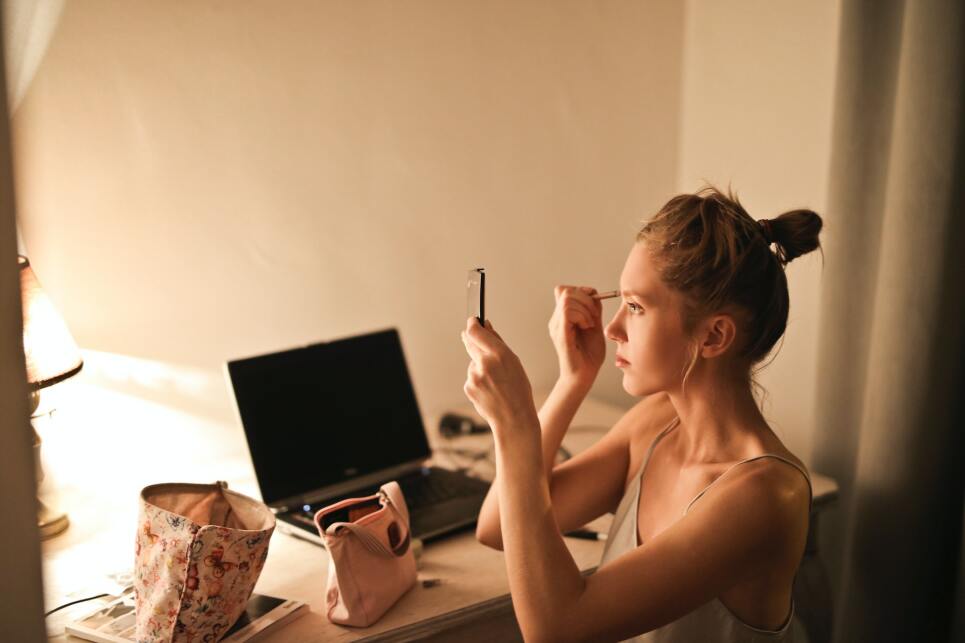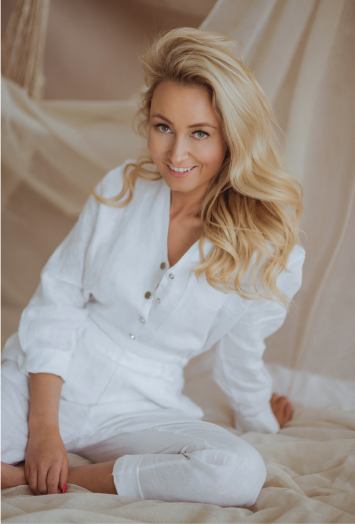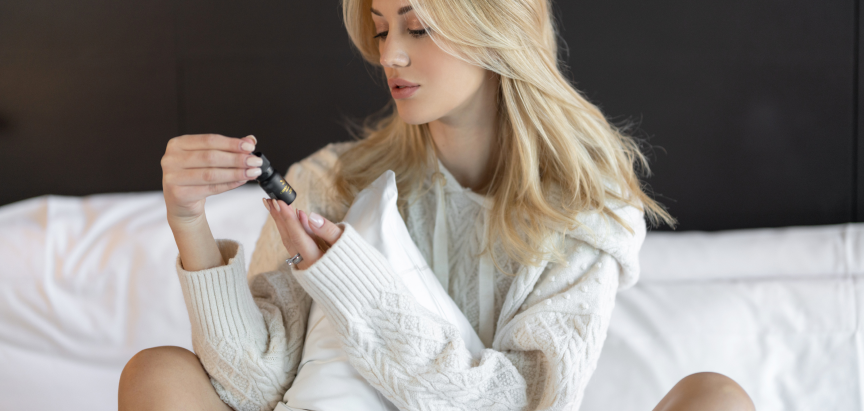HUBburger® Group Services
Log in
| admins |
| StreetTadeusza Tylewskiego 44 |
| 80-169Gdansk |
| Poland |
HUBburger® Group Services
Vegan cosmetics - a trendy trend or an obvious future? Facts you should know
Health
Most brands in the cosmetics industry are not vegan, and the products you find in stores contain animal ingredients, which many people are unaware of. Ordinary makeup products, even high-end ones, however, may soon fall behind natural, plant-based, vegan makeup and products that are climbing the ranks and gaining popularity at a dizzying pace.
Advertising

pic. pexels.com
From palettes to creams and concealers and even shampoos and soaps, there is a growing demand for vegan cosmetics for a number of reasons. Check out everything you need to know about vegan makeup and beauty products.
Important facts about vegan makeup
WHAT COUNTS AS VEGAN MAKEUP?
Vegan makeup is basically products that are free of any kind of animal by-products. This includes honey, beeswax, lanolin, collagen, albumin, carmine, cholesterol, gelatin and many others. Remember that labels such as "cruelty-free", "natural" or "organic" do not automatically make a product vegan. While these factors describe the nature of veganism, there are many more standards that must be met to be called 100 percent vegan.
CHECKING LABELS: WHAT ARE THE DIFFERENCES BETWEEN VEGAN, NATURAL, ORGANIC AND CRUELTY-FREE PRODUCTS ?
When the label of a cosmetic communicates that it is made from natural ingredients, technically it does not mean that every ingredient is derived from nature. A natural cosmetic still has minimal amounts of other synthetic substances in its composition. Organic makeup, however, goes a step further than natural makeup. It contains more ingredients from nature that are not genetically modified, are not sprayed with pesticides and are free of any chemically enhanced fertilizers. Vegan makeup can be classified as organic, although these terms are not necessarily synonymous. Example? Some organic brands contain pure honey or beeswax or collagen that does not meet vegan ethical standards.
MAKEUP AND CRUELTY-FREE PRODUCTS
The cruelty-free mark basically means that these are certified products, and no animal testing took place in the production process. This includes vegan makeup, although like organic makeup, cruelty-free makeup can also be made from animal derivatives. So a product can be cruelty-free and not vegan.
Since these labels have descriptions and features that are remarkably similar from one another, they can cause a lot of confusion if you are not thorough. Fortunately, there are simple ways to tell if the makeup you buy is vegan or not.
3 WAYS TO TELL IF MAKEUP PRODUCTS AND COSMETICS ARE VEGAN
1.Check the label
Branding is key in the beauty world. If the products really are vegan, this is something that cosmetic companies are trying to emphasize as much as possible. You can easily find markings and certifications on the packaging. Vegan makeup products will often have "vegan" written on them right away, which you can always double-check with the other two ways on this list.
2.Search the internet
If, despite the manufacturer's declarations, you have doubts, do a quick reaserch on the web. There are several blogs and online forums that you can read or join to fully know if the product you are looking for sticks to vegan ethics or not. In addition, PETA has an online database that has a list of selected items that are cruelty-free. You'll also usually find a bunny logo on the packaging as an approved "cruelty-free" product.
3.Read the list of ingredients
You have to be quite an expert in the world of cosmetics to answer whether the ingredients listed in the composition of cosmetic products are animal derivatives. Unlike food labels, which clearly state animal products in the allergen information, the label of a cosmetic only states what substance is in it, without necessarily telling where it comes from. When looking for vegan makeup and beauty products these ingredients should be avoided:
22 cosmetic ingredients that are not vegan:
Collagen
Present in many anti-aging products, collagen is said to have skin-repairing properties such as increased hydration and support for skin elasticity. Collagen is taken from animal tissue or ligaments, often from cows.
Glycerin
This ingredient is known for making the skin soft and supple, healthy-looking. It is usually taken from animal fats.
Lanolin
Lanolin is used to moisturize, usually found in lip balms and lipsticks. This emollient is extracted in sheep's wool.
Casein
Also written as Caseinate or Sodium Caseinate, this protein is mainly found in facial preparations and conditioners. It is derived from cow's milk.
Squalene
This emollient is used as a natural antioxidant to combat aging. Squalene is taken from shark liver oil.
Guanine
Found in many eye shadows, highlighters and bronzers, this crystal is usually harvested from fish scales.
Tallow
This emollient is found in animal fat and is also recorded as oleic acid in most products. It can be found in liquid and bar soap, skin care products, nail polish and hair perm formulations.
Karmin
Carmine, also referred to as cochineal, natural red 4, E120 and C.I. 75470, is a red dye often used in blushes, lipsticks and nail polishes.
Keratin
Keratin is often advertised as one of the most effective substances for smoothing hair. It can be found in shampoos and conditioners. This ingredient is extracted from horns, feathers, quills, hair, fur and ground hooves.
Retinol
Known as a powerful source of vitamin A, retinol is found in many anti-aging skin care products. It can be obtained from several animal sources, such as whole milk, fish, meat and eggs.
Polypeptides and progesterone
These two compounds are commonly found in anti-aging products and anti-aging creams. Although they can be produced synthetically, most are often derived from animal by-products.
Lecithin
Found in creams, lotions, soaps, shampoos, lipsticks and other cosmetics, this wax-like substance is found in nerve tissues such as milk and blood, but often comes from eggs.
Shellac
Shellac is often used in hair and nail polishes to create a glossy finish. It is extracted from the Lac worm.
Stearic acid
This type of acid can be found in deodorants, soaps, moisturizers and hair products. It is extracted from pig stomachs.
Placenta
Doesn't sound alarming, does it? Meanwhile, it's all about the bearing. This ingredient, however, comes from pregnant mammals to provide nutrition for their fetus. It is found in anti-aging products as well as in shampoos, masks, soaps and many others.
Ambergris
Ambergris is found in many perfumes as a fragrance fixative. It is mainly formed in the intestinal tract of the whale and is taken from its feces.
Polysorbates
This emulsifier is an edible fatty acid found in many cosmetics.
Elastin
Also used in products that use collagen, elastin is an animal protein that can strengthen the skin and increase its elasticity.
Cholesterol
Cholesterol is apparently not only found in food. Some cosmetic products, such as eye creams and shampoos contain this animal derivative. It is usually derived from blood, nerve tissue, fat and eggs.
Lactic Acid (Lactic Acid)
Exfoliants are the most common products that contain this acid. It is extracted from both muscle tissue and animal blood.
Beeswax (Cera Alba)
Beeswax is used to prevent emulsion separation. It can also be found in most mascaras, lip balms, hand creams, moisturizers and even mustache creams for men. As the name suggests, this wax is extracted from bee honeycombs, which is also used in many candles and pastes.
Honey
Honey can be found in several organic cosmetic products, including face masks, moisturizers and soaps. It is known to help with acne, strengthen the complexion and have an anti-aging effect. However, it is obtained from bees.
NOTE: Several of these ingredients, do not necessarily come from animals. Some of them are condensed with vegan alternatives. Some are produced synthetically, while others have soy versions or are derived from vegetables and vegetable oils.
WHAT'S ALL THE FUSS ABOUT?
With so many ingredients to look out for, it may seem like looking for vegan alternatives to your favorite makeup brand and is breakneck when in fact it's not. Vegan makeup products and cosmetics really have many benefits, salutary for your beauty and your health, as well as for the health of our planet.
WHAT ARE THE PERKS OF VEGAN MAKEUP AND BEAUTY PRODUCTS?
- Avoid harmful chemicals
Chemicals and synthetic compounds in non-vegan makeup are designed to make them last longer. Additional ingredients can also make them waterproof, smudge-resistant and more durable. Introducing these chemicals into your skin in the long run can cause serious damage to its quality. With all the complicated scientific terms on the ingredient list, you may not know what chemical processes occur in your skin under their influence.
Vegan makeup and products are completely natural and filled with far fewer chemical ingredients. The list of ingredients is usually short, but that doesn't mean they aren't as effective as synthetics.
- You reduce the risk of skin irritation and protect sensitive skin
Classic cosmetics may contain substances such as preservatives, dyes and fragrances that can cause irritation and contact dermatitis. Substances in vegan products do not contain such chemicals, which lowers the risk of. If you have sensitive skin, prone to acne, dryness, and inflammation due to allergic reactions, switching to vegan products can do your skin a lot of good. They contain fewer ingredients, so they can relieve the symptoms of skin inflammation, and pores remain unclogged. The plant-based ingredients are also gentler on the skin, making them ideal for eczema-prone skin.
- Reduce stress caused by odors
Some cosmetic products have scents that can be very irritating. This intense scent is intended to mask the smell of other ingredients or to make it a "signature" identifying a particular brand. However, strong odors can cause migraines in some people. Vegan products are often unscented,or contain natural fragrances that do not cause stress from strong odors.
- You help protect the environment
You don't have to completely change your lifestyle to vegan, but even just changing your cosmetics can certainly do a lot of good. In addition to being cruelty-free, vegan cosmetics reduce the need for animal by-products. In addition, their packaging is always recyclable.
IS VEGAN BETTER?
Why more and more people are heading to the shelves of brands bearing the green, vegan label. On the one hand, certainly the reason is the fashion of the Eco trend and it is a bit inappropriate to stand on the other side today. Vegan makeup is also a good choice for owners of sensitive skin, making it an ideal type of makeup for the vast majority of. The downside is durability, which is much shorter in comparison when the natural composition is compared to synthetic counterparts. They are the ones that "preserve" cosmetics for a longer period of time. There is also a smaller selection of them, such as. as far as the color palette is concerned, due to the limited number of ingredients.
However, given all the pluses that vegan beauty products have, it may be the best choice for everyone, especially those with problematic skin. With all-natural ingredients and reduced side effects of long-term makeup use, vegan makeup products are an investment in skin health and beauty.
Text based on: https://www.alyaka.com/magazine/
Important facts about vegan makeup
WHAT COUNTS AS VEGAN MAKEUP?
Vegan makeup is basically products that are free of any kind of animal by-products. This includes honey, beeswax, lanolin, collagen, albumin, carmine, cholesterol, gelatin and many others. Remember that labels such as "cruelty-free", "natural" or "organic" do not automatically make a product vegan. While these factors describe the nature of veganism, there are many more standards that must be met to be called 100 percent vegan.
CHECKING LABELS: WHAT ARE THE DIFFERENCES BETWEEN VEGAN, NATURAL, ORGANIC AND CRUELTY-FREE PRODUCTS ?
When the label of a cosmetic communicates that it is made from natural ingredients, technically it does not mean that every ingredient is derived from nature. A natural cosmetic still has minimal amounts of other synthetic substances in its composition. Organic makeup, however, goes a step further than natural makeup. It contains more ingredients from nature that are not genetically modified, are not sprayed with pesticides and are free of any chemically enhanced fertilizers. Vegan makeup can be classified as organic, although these terms are not necessarily synonymous. Example? Some organic brands contain pure honey or beeswax or collagen that does not meet vegan ethical standards.
MAKEUP AND CRUELTY-FREE PRODUCTS
The cruelty-free mark basically means that these are certified products, and no animal testing took place in the production process. This includes vegan makeup, although like organic makeup, cruelty-free makeup can also be made from animal derivatives. So a product can be cruelty-free and not vegan.
Since these labels have descriptions and features that are remarkably similar from one another, they can cause a lot of confusion if you are not thorough. Fortunately, there are simple ways to tell if the makeup you buy is vegan or not.
3 WAYS TO TELL IF MAKEUP PRODUCTS AND COSMETICS ARE VEGAN
1.Check the label
Branding is key in the beauty world. If the products really are vegan, this is something that cosmetic companies are trying to emphasize as much as possible. You can easily find markings and certifications on the packaging. Vegan makeup products will often have "vegan" written on them right away, which you can always double-check with the other two ways on this list.
2.Search the internet
If, despite the manufacturer's declarations, you have doubts, do a quick reaserch on the web. There are several blogs and online forums that you can read or join to fully know if the product you are looking for sticks to vegan ethics or not. In addition, PETA has an online database that has a list of selected items that are cruelty-free. You'll also usually find a bunny logo on the packaging as an approved "cruelty-free" product.
3.Read the list of ingredients
You have to be quite an expert in the world of cosmetics to answer whether the ingredients listed in the composition of cosmetic products are animal derivatives. Unlike food labels, which clearly state animal products in the allergen information, the label of a cosmetic only states what substance is in it, without necessarily telling where it comes from. When looking for vegan makeup and beauty products these ingredients should be avoided:
22 cosmetic ingredients that are not vegan:
Collagen
Present in many anti-aging products, collagen is said to have skin-repairing properties such as increased hydration and support for skin elasticity. Collagen is taken from animal tissue or ligaments, often from cows.
Glycerin
This ingredient is known for making the skin soft and supple, healthy-looking. It is usually taken from animal fats.
Lanolin
Lanolin is used to moisturize, usually found in lip balms and lipsticks. This emollient is extracted in sheep's wool.
Casein
Also written as Caseinate or Sodium Caseinate, this protein is mainly found in facial preparations and conditioners. It is derived from cow's milk.
Squalene
This emollient is used as a natural antioxidant to combat aging. Squalene is taken from shark liver oil.
Guanine
Found in many eye shadows, highlighters and bronzers, this crystal is usually harvested from fish scales.
Tallow
This emollient is found in animal fat and is also recorded as oleic acid in most products. It can be found in liquid and bar soap, skin care products, nail polish and hair perm formulations.
Karmin
Carmine, also referred to as cochineal, natural red 4, E120 and C.I. 75470, is a red dye often used in blushes, lipsticks and nail polishes.
Keratin
Keratin is often advertised as one of the most effective substances for smoothing hair. It can be found in shampoos and conditioners. This ingredient is extracted from horns, feathers, quills, hair, fur and ground hooves.
Retinol
Known as a powerful source of vitamin A, retinol is found in many anti-aging skin care products. It can be obtained from several animal sources, such as whole milk, fish, meat and eggs.
Polypeptides and progesterone
These two compounds are commonly found in anti-aging products and anti-aging creams. Although they can be produced synthetically, most are often derived from animal by-products.
Lecithin
Found in creams, lotions, soaps, shampoos, lipsticks and other cosmetics, this wax-like substance is found in nerve tissues such as milk and blood, but often comes from eggs.
Shellac
Shellac is often used in hair and nail polishes to create a glossy finish. It is extracted from the Lac worm.
Stearic acid
This type of acid can be found in deodorants, soaps, moisturizers and hair products. It is extracted from pig stomachs.
Placenta
Doesn't sound alarming, does it? Meanwhile, it's all about the bearing. This ingredient, however, comes from pregnant mammals to provide nutrition for their fetus. It is found in anti-aging products as well as in shampoos, masks, soaps and many others.
Ambergris
Ambergris is found in many perfumes as a fragrance fixative. It is mainly formed in the intestinal tract of the whale and is taken from its feces.
Polysorbates
This emulsifier is an edible fatty acid found in many cosmetics.
Elastin
Also used in products that use collagen, elastin is an animal protein that can strengthen the skin and increase its elasticity.
Cholesterol
Cholesterol is apparently not only found in food. Some cosmetic products, such as eye creams and shampoos contain this animal derivative. It is usually derived from blood, nerve tissue, fat and eggs.
Lactic Acid (Lactic Acid)
Exfoliants are the most common products that contain this acid. It is extracted from both muscle tissue and animal blood.
Beeswax (Cera Alba)
Beeswax is used to prevent emulsion separation. It can also be found in most mascaras, lip balms, hand creams, moisturizers and even mustache creams for men. As the name suggests, this wax is extracted from bee honeycombs, which is also used in many candles and pastes.
Honey
Honey can be found in several organic cosmetic products, including face masks, moisturizers and soaps. It is known to help with acne, strengthen the complexion and have an anti-aging effect. However, it is obtained from bees.
NOTE: Several of these ingredients, do not necessarily come from animals. Some of them are condensed with vegan alternatives. Some are produced synthetically, while others have soy versions or are derived from vegetables and vegetable oils.
WHAT'S ALL THE FUSS ABOUT?
With so many ingredients to look out for, it may seem like looking for vegan alternatives to your favorite makeup brand and is breakneck when in fact it's not. Vegan makeup products and cosmetics really have many benefits, salutary for your beauty and your health, as well as for the health of our planet.
WHAT ARE THE PERKS OF VEGAN MAKEUP AND BEAUTY PRODUCTS?
- Avoid harmful chemicals
Chemicals and synthetic compounds in non-vegan makeup are designed to make them last longer. Additional ingredients can also make them waterproof, smudge-resistant and more durable. Introducing these chemicals into your skin in the long run can cause serious damage to its quality. With all the complicated scientific terms on the ingredient list, you may not know what chemical processes occur in your skin under their influence.
Vegan makeup and products are completely natural and filled with far fewer chemical ingredients. The list of ingredients is usually short, but that doesn't mean they aren't as effective as synthetics.
- You reduce the risk of skin irritation and protect sensitive skin
Classic cosmetics may contain substances such as preservatives, dyes and fragrances that can cause irritation and contact dermatitis. Substances in vegan products do not contain such chemicals, which lowers the risk of. If you have sensitive skin, prone to acne, dryness, and inflammation due to allergic reactions, switching to vegan products can do your skin a lot of good. They contain fewer ingredients, so they can relieve the symptoms of skin inflammation, and pores remain unclogged. The plant-based ingredients are also gentler on the skin, making them ideal for eczema-prone skin.
- Reduce stress caused by odors
Some cosmetic products have scents that can be very irritating. This intense scent is intended to mask the smell of other ingredients or to make it a "signature" identifying a particular brand. However, strong odors can cause migraines in some people. Vegan products are often unscented,or contain natural fragrances that do not cause stress from strong odors.
- You help protect the environment
You don't have to completely change your lifestyle to vegan, but even just changing your cosmetics can certainly do a lot of good. In addition to being cruelty-free, vegan cosmetics reduce the need for animal by-products. In addition, their packaging is always recyclable.
IS VEGAN BETTER?
Why more and more people are heading to the shelves of brands bearing the green, vegan label. On the one hand, certainly the reason is the fashion of the Eco trend and it is a bit inappropriate to stand on the other side today. Vegan makeup is also a good choice for owners of sensitive skin, making it an ideal type of makeup for the vast majority of. The downside is durability, which is much shorter in comparison when the natural composition is compared to synthetic counterparts. They are the ones that "preserve" cosmetics for a longer period of time. There is also a smaller selection of them, such as. as far as the color palette is concerned, due to the limited number of ingredients.
However, given all the pluses that vegan beauty products have, it may be the best choice for everyone, especially those with problematic skin. With all-natural ingredients and reduced side effects of long-term makeup use, vegan makeup products are an investment in skin health and beauty.
Text based on: https://www.alyaka.com/magazine/
If you think this is an interesting article, it will be my pleasure if you share it with others.
Greetings
| Justyna Moraczewska |
| Justyna Moraczewska |
| Street |
- Share
tags
Recent
Health
Meditation and working with one's own mind is an ancient practice that has thousands of years of roots in many cultures and traditions.
Business
HUBburger.com CEO Maciej Sagal in an interview with The Birb Nest channel
News
The festival season can be seen around the corner, but at this event, in addition to the excitement of performances by Polish hip-hop stars - you will also be able to enjoy activities in a special hemp zone HUBburger.com
top3
Business
Author
| redakcja |
| redakcja |
| Street |
Date of publication 2023-05-05
HUBburger.com CEO Maciej Sagal in an interview with The Birb Nest channel
Business
Author
| redakcja |
| redakcja |
| Street |
Date of publication 2023-04-24
Możesz stać z boku i przyglądać się, jak nasz biznes rośnie, ale możesz też dołączyć do nas, bo mamy zamiar oddać w Wasze ręce 20% udziałów w naszej firmie. Nadchodzi bowiem czas na NFT Seed!
News
Author
| redakcja |
| redakcja |
| Street |
Date of publication 2023-04-14
Since the beginning of Hubburger.com - one of the most important pillars and ideas is and will be education
News
Author
| redakcja |
| redakcja |
| Street |
Date of publication 2023-04-13
The German government has concluded that the time has come to clean up the marijuana issue
News
Author
| redakcja |
| redakcja |
| Street |
Date of publication 2023-04-12
A hemp field on Jantarova Street in Lublin has become a tourist attraction
Business
Author
| Maja Wirowska |
| Maja Wirowska |
| Street |
Date of publication 2023-02-15
Artificial intelligence can make a difference in many industries
News
Author
| redakcja |
| redakcja |
| Street |
Date of publication 2023-02-15
Health
Author
| Justyna Moraczewska |
| Justyna Moraczewska |
| Street |
Date of publication 2023-02-15
Vegetables nourish our bodies, strengthen immunity, prevent and protect against many diseases.
Health
Author
| Justyna Moraczewska |
| Justyna Moraczewska |
| Street |
Date of publication 2023-02-10
Ecology
Author
| Monika Sobczak |
| Monika Sobczak |
| Street |
Date of publication 2023-02-10
Health
Author
| Monika Sobczak |
| Monika Sobczak |
| Street |
Date of publication 2023-02-15
Eco-friendly detergents, soaps and powders are a green alternative
Advertising
Recommended
Business
Web3/NFT project through which users receive casback in the form of tokens for purchases from subscribed vendors
Health
Protein powder is one of the most popular supplements used for weight loss and sports activities. Protein is essential for both building muscle mass and burning fat. Vegan proteins are becoming increasingly popular, among them proteins derived from hemp seeds. The easiest method of protein supplementation is a delicious and nutritious shake that you can quickly make and take with you wherever you want.
News
Oslo will have world's first all-electric public transport system. In the race for a better environment and population health, Norwegians are on the final straight.
News
Oslo will have world's first all-electric public transport system. In the race for a better environment and population health, Norwegians are on the final straight.
Podcast
We have selected for you the most interesting, in our opinion, episodes of podcasts on the subject of hemp, but not only. We also reserve space here for our audio production, which is slowly sprouting in our editorial office.






































Comments